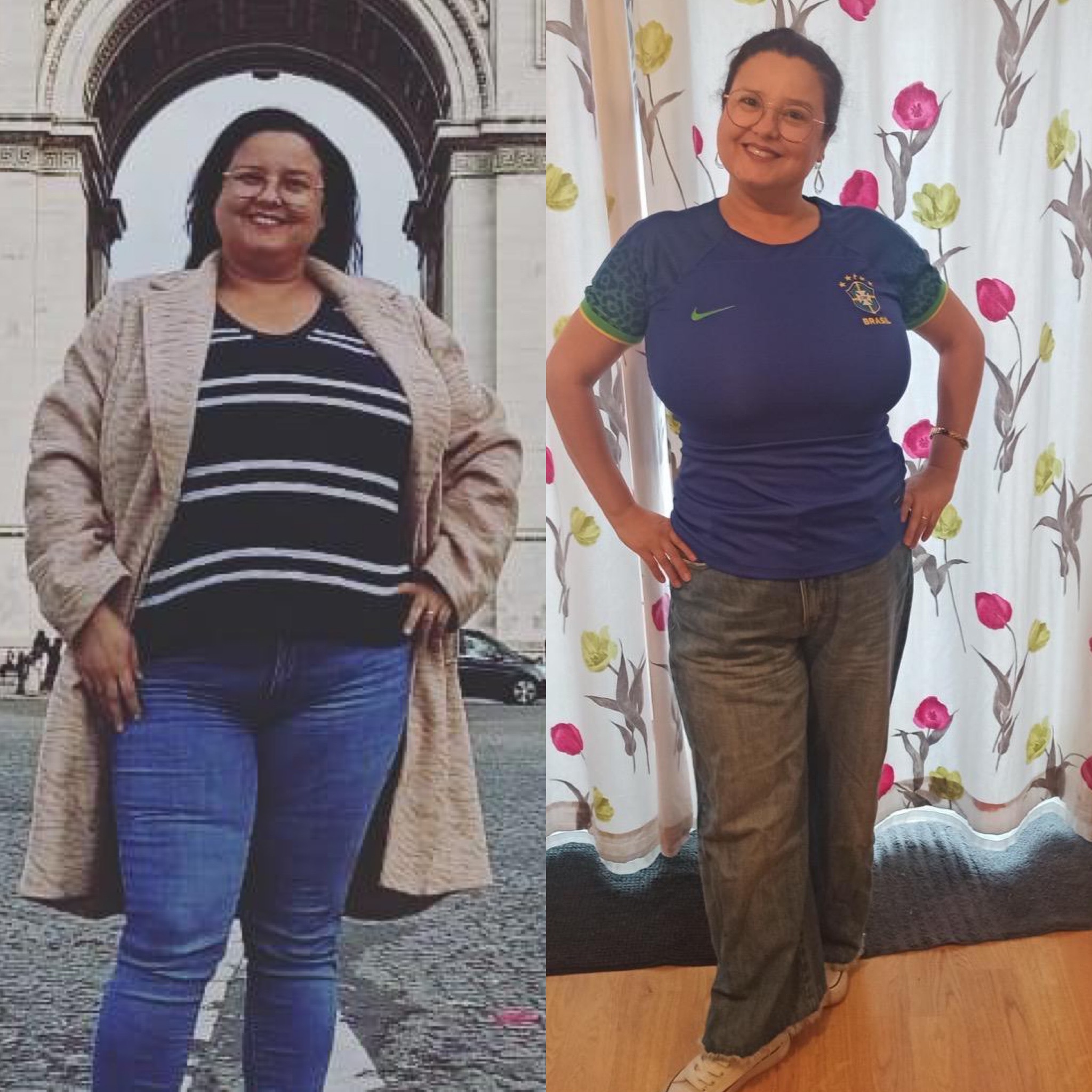Low Carb Diet, What are the Benefits?

Low-carb diets have become popular recently due to their effectiveness in weight loss, blood sugar control and overall health. When people talk about a low-carb diet, many get confused, thinking that it is a ‘no-carb’ diet approach. So let me explain more about the low-carb diet concept, its different types, benefits and who the diet is for.
What is a Low-Carb Diet?
As mentioned above, a low-carb diet is not a no-carb diet. This type of diet is rather a reduction of carbohydrate intake. The diet has a higher amount of vegetables, protein, healthy fats and some carbohydrates from fruit and vegetables.
Key principles of a low-carb diet include:
- Emphasis on whole, nutrient-dense foods such as lean proteins, leafy greens, nuts, seeds, and healthy fats.
- Limited intake of refined carbohydrates and sugars.
- Controlled inclusion of certain grains, pulses, and fruits to ensure balance.
Most popular types of Low-Carb Diets
- Low-Carb Diet
- Carb Intake: usually 15–20% of total daily calories
- Focus: Balanced approach, suitable for weight loss, blood sugar stabilisation, and general health.
- Food Options: A variety of fruits, vegetables, lean proteins, nuts, seeds, and some whole grains.
- Ketogenic Diet (Keto)
- Carb Intake: usually 5–10% of total daily calories
- Focus: Forces the body into ketosis, where fat becomes the primary energy source.
- Food Options: High in fats (avocados, oils, nuts), moderate in proteins, and very low in carbs.
- Ideal For: Those with epilepsy, type 2 diabetes, or significant weight-loss goals.
Nutritional and Health Benefits of Low-Carb Diets
A well-designed low-carb diet is vibrant and nutritious, offering benefits such as:
- Rich in Nutrients:
Includes a variety of proteins, healthy fats, vegetables, and fruits like berries, avocados, and kiwi, ensuring a colourful, balanced plate. - Stable Blood Sugar Levels:
It helps control insulin and reduce sugar spikes, ideal for managing type 2 diabetes or insulin resistance. - Supports Fat Loss and Abdominal Fat Reduction:
By lowering insulin, the body prioritises burning stored fat, especially visceral fat, linked to metabolic diseases. - Enhances Hormonal Health:
Stabilises hormones that regulate appetite and fat storage, benefiting women during menopause. - Improves Cardiovascular Markers:
It can raise HDL (good cholesterol), reduce triglycerides, and lower inflammation. - Reduces Risk of Fatty Liver:
Studies suggest a significant decrease in liver fat with reduced carbohydrate intake. - Reverses Type 2 Diabetes:
Minimises blood sugar fluctuations and dependency on medication, potentially leading to diabetes remission.
Low-Carb vs. Keto: Key Differences
| Diet | Low-Carb Diet | Keto Diet |
| Carb Intake | 5-10% of your calories/day | 15-20% of your calories/day |
| Focus | General health and weight loss | Ketosis and metabolic changes |
| Flexibility | Includes more food variety | More restrictive, requires precision |
| Fat Intake | Moderate | High |
| Sustainability | Long-term | Short- to medium-term unless supervised |
Addressing Myths About Low-Carb Diets
- Myth: Low-carb diets are boring and restrictive.
- Reality: They allow a diverse range of foods, including lean proteins, healthy fats, vegetables, and even grains in moderation.
- Myth: Low-carb diets eliminate all carbs.
- Reality: Carbs are included but carefully portioned, emphasising quality over quantity.
- Myth: They are unsustainable.
- Reality: With proper planning and customisation, low-carb diets can be enjoyable and long-term.
Who Benefits from Low-Carb Diets?
Low-carb diets are especially effective for:
- Individuals with type 2 diabetes or insulin resistance.
- People looking to lose weight, particularly abdominal fat.
- Those with non-alcoholic fatty liver disease (NAFLD).
- Women dealing with menopause-related weight gain.
- Anyone seeking to improve cardiovascular or metabolic health.
Can a Low-Carb Diet Be a Sustainable Lifestyle?
Yes, there is growing evidence that low-carb diets can be adopted as a sustainable lifestyle rather than just a temporary diet. The most important fact is to adapt to every individual’s needs, health goals and preferences. Different from fad diets, low-carb can be a lifestyle choice. Some people find it more sustainable to eat more fibre, healthy fats and proteins and adapt very well to a low intake of carbohydrates.
Ketogenic Diet as Therapeutic Diet for Epilepsy
The ketogenic diet (keto) was originally developed as a medical therapy in the 1920s to treat epilepsy, especially in children who didn’t respond to conventional anti-seizure medications. Its therapeutic use is based on inducing ketosis, a metabolic state where the body uses fat rather than glucose as its primary energy source.
How Keto Works for Epilepsy
- Ketosis and Brain Function
- During ketosis, the liver converts fat into ketones, which act as an alternative energy source for the brain.
- Ketones are thought to stabilise neuronal activity and reduce the excitability in the brain that leads to seizures.
- Reduction in Seizure Frequency
- Studies have shown that the ketogenic diet can reduce seizure frequency by up to 50% in children with drug-resistant epilepsy. In some cases, seizures may stop entirely.
- Neuroprotective Effects
- The exact mechanisms remain under study, but the keto diet may promote neuroprotective effects by reducing oxidative stress, improving mitochondrial function, and modulating neurotransmitters.
Other Neurological Applications
Emerging research suggests the ketogenic diet may also have potential benefits for other neurological conditions, such as:
- Alzheimer’s disease
- Parkinson’s disease
- Traumatic brain injury
A low-carb lifestyle is highly sustainable when designed with flexibility and individual preferences in mind. It can be a powerful tool for improving metabolic health, supporting weight management, and fostering long-term well-being.
The ketogenic diet, while beneficial for specific medical purposes such as epilepsy treatment, is more restrictive and often requires medical supervision, making it less practical as a long-term lifestyle choice for the average individual.
If you’re considering adopting a low-carb lifestyle or exploring the ketogenic diet for medical reasons, consult with a registered dietitian or nutritionist to ensure the approach aligns with your health goals.
Is low-carb the right diet for me?
Determining if a low-carb diet is right for you depends on various factors, including your health goals, lifestyle, medical history, and personal preferences. Here’s a breakdown to help you evaluate if this dietary strategy is suitable for you:
1. Health Goals
- Weight Loss: Low-carb diets are often effective for those looking to lose weight, particularly abdominal fat. By reducing insulin levels and increasing satiety (feeling full), it can help regulate appetite and encourage fat loss. If weight loss is your primary goal, a low-carb diet could be a good fit.
- Blood Sugar Control: If you have insulin resistance, prediabetes, or type 2 diabetes, a low-carb diet can help stabilise blood sugar levels and improve insulin sensitivity. It can also reduce the need for medication in some cases, but always in consultation with a healthcare provider.
- Improved Metabolism: A low-carb diet may help manage metabolic conditions, such as fatty liver disease (NAFLD) or cardiovascular risk factors, including high triglycerides and low HDL (good cholesterol).
- Hormonal Health: If you’re dealing with hormone imbalances, especially during menopause, a low-carb diet can help stabilise insulin levels, improve energy, and support weight management.
2. Medical Conditions
- Epilepsy: If you’re seeking dietary treatment for epilepsy, particularly in children with drug-resistant seizures, the ketogenic diet (a more extreme form of low-carb) might be recommended. This diet requires medical supervision but has been shown to reduce seizures.
- Gut Health and Digestion: If you have digestive issues like irritable bowel syndrome (IBS), bloating, or food intolerances, a low-carb diet that emphasises whole foods and fibre-rich vegetables could be beneficial.
- Autoimmune Conditions or Inflammation: Low-carb diets, particularly those high in healthy fats (like omega-3 fatty acids), may reduce markers of inflammation and benefit those with autoimmune conditions.
3. Lifestyle and Preferences
- Diet Flexibility: A low-carb diet doesn’t mean zero carbs. It simply involves reducing your carb intake, especially refined carbs and sugars. If you enjoy eating whole foods like lean proteins, healthy fats, vegetables, nuts, and berries, a low-carb lifestyle can still be very satisfying. However, if you rely heavily on high-carb foods like pasta, bread, or sugary snacks, you may find it challenging to adapt.
4. Sustainability
- Long-Term Adherence: If you’re someone who enjoys variety in your diet and feels restricted by overly rigid food choices, you may need to adopt a moderate low-carb approach. Extreme low-carb diets (such as the ketogenic diet) can be hard to maintain long-term due to their restrictive nature. A low-carb diet (with more flexibility) can be a sustainable option for weight maintenance, better metabolic health, and overall well-being.
- Balanced Nutrition: A well-planned low-carb diet includes a variety of nutrient-dense foods, including vegetables, healthy fats, lean proteins, and even small amounts of whole grains and legumes. If you enjoy these foods and can plan meals around them, low-carb can be both delicious and nutritious.

If you’re unsure whether this strategy is for you or not, working with a registered dietitian or nutritionist can help you create a personalised plan based on your unique needs, preferences, and health goals. They can also ensure you’re getting all the essential nutrients and adjusting the diet as needed for sustainability.
A low-carb diet is not a one-size-fits-all approach but a versatile, scientifically-backed strategy for improving health. Whether you’re seeking weight loss, better blood sugar control, or a sustainable lifestyle, a low-carb diet can deliver lasting results when guided by a professional.
If you’re considering trying this diet approach, speak to a registered dietitian or nutritionist so they can design a plan tailored to your goals and preferences. A low-carb lifestyle isn’t about deprivation—it’s about thriving with vibrant, nutritious meals that work for you.
For expert guidance, book a consultation with a nutritionist to start your journey toward a healthier you!
Get an action plan with a Free Assessment!
Get personalized insights to enhance your well-being and achieve your goals. In this 15-minute video call, we will listen to you and guide you on what you need to do.
Schedule Your Free AssessmentRecent blogs







